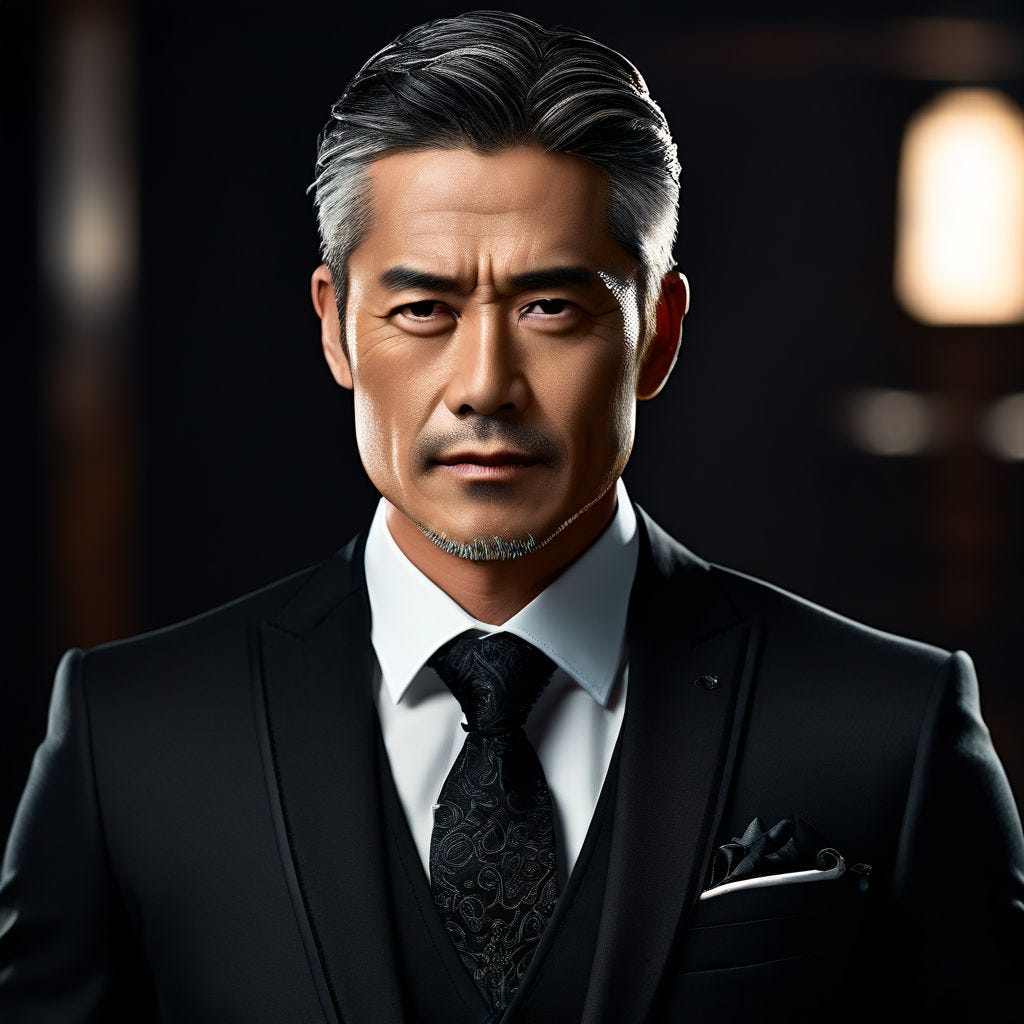Who is Kannon?
The other day, when I wrote Who is Kaylie? I came away from it with a sense of pride. I like the piece and it was a bit of exposing my vulnerabilities to write it. There was more of that when I wrote about Who is Ray?
But now I turn to a much scarier topic. Who is Kannon Niruku?
One thing I wanted to avoid at all costs was antagonists who were cardboard cutouts or caricatures of evil. As much as I like Lord of the Rings, as it is presented, Sauron is just an embodiment of evil, as if a big black blob of all unexplainable bad. (This isn’t truly who Sauron is — his story is tragic and I may write about that here at some point). I’m not picking on Tolkien at all. He’s a master of his craft, but I wanted villains who were more gray than that. I wanted villains who were just as human as the heroes.
From the outside, Kannon is the novel’s chief antagonist. He employs some enforcers who also appear in the book (at least three of them make appearances). And while each is terrifying in his own way, it is Kannon who is the most horrifying of them all.
But here’s the thing. If I’m going to take credit for Kaylie and Estia and Ray, each of whom reflects some deep part of me that is good, then I need to take credit for Kannon Niruku, which reflects some deep part of me that is not good.
Kaylie Stewart taught me something about the beauty that lives in me—my capacity for empathy, growth, and fierce compassion. Ray Decker taught me that I was capable of strength, self-sacrifice, and love. Estia taught me I was capable of intelligence, adaptability, and mystery. But creating Kannon Niruku forces me to look at the darker parts of myself.
Because Kannon came from me too.
It’s uncomfortable to admit that. He’s manipulative, cold, arrogant, and above all, convinced that he’s right—even when he’s orchestrating horrors. He believes he’s a visionary. He thinks he’s saving humanity. And maybe, in some twisted way, he is. He believes in history, ritual, process, data, and analysis. When you first read about him in Chapter 7, you realize he is coldly efficient, and some readers might even identify with some of the parts of him that might otherwise be good. You might even argue that the same story told from his POV would make him the hero—at least in his own mind.
That’s what makes him horrifying. But even more horrifying is the fact that I admire him, even as I dislike him.
Kannon isn’t a cartoon villain. He doesn’t see himself as evil. He justifies everything—the transmigrant program, the use of simulants, the lies, the murders, the manipulation of life and death—all in the name of progress. Control. Stability. Order. Maybe even legacy.
And the scariest part? I understand him.
That understanding didn’t come from studying other villains or crafting a character blueprint. It came from inside. From recognizing the part of myself that wants to win the argument at all costs. The part that fears chaos and wants to control outcomes. The part that could convince itself that the end justifies the means.
Kannon is my shadow. He’s ambition without compassion. Intelligence without humility. Vision without soul.
But he’s also brilliant. Charismatic. He genuinely believes he’s doing what must be done. And when I’m honest with myself, I know where that conviction comes from, too. I’ve had moments of that same iron certainty when I thought I alone saw the big picture.
I didn’t create Kannon to be a monster. I created him to be human—but a human consumed by his own delusions and unchecked brilliance.
Writing him was hard. Living in his mind, even for a scene, made me feel like I was breathing thinner air. But I had to walk with him. I had to give him his voice. Because without understanding him, the story would only be half-told. The villain would be only half-realized. The story only half-baked.
So if Kaylie is my compassion, Kannon is my warning.
I’m capable of both.
That scares the shit out of me. That doesn’t make me a bad person. It makes me a writer. And more than that, it makes me human.
I encourage you, if you’re a writer, to make your villains as human as your heroes. Give them a cause that they might even see as righteous, or perhaps necessary. Make them believers in themselves not merely as chaos agents or evil blobs, but agents of change they see as necessary.
Transmigrant, a survival thriller in a science fiction setting, can be found on Amazon and Audible.
As of the time of this writing, I still have some free Audible credits left (US and UK) available in exchange for fair reviews.




This is awesome on a number of accounts. The deep character profile and acknowledgement of shadow self.